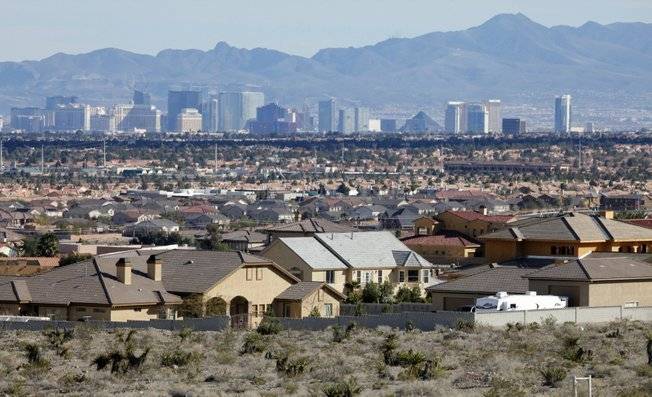VEGAS INC archives
Las Vegas existing home sales in July were strong by historic standards, but concerns about the economy and the political standoff in Washington, D.C., cost the Southern Nevada market some home sales, according to a San Diego research firm.
Sales of existing homes have risen year-over-year for eight consecutive months, boosted by investors paying with cash and first-time homebuyers, DataQuick reported.
Existing home sales in July were down 13.9 percent from June – single-family home sales fell from 3,722 to 3,144 and condo sales fell from 1,002 to 923. The good news is that July’s sales were 5.7 percent higher than the same month in 2010, the first month to lose a boost from the federal homebuyer tax credit that expired, DataQuick said.
Since 1994, sales typically decline on average by 8.4 percent between June and July. The larger-than-usual drop between June and July this year was likely the result of more potential homebuyers getting nervous about worsening economic news as well as concerns about political leaders in Washington dealing with the federal debt ceiling, said DataQuick spokesman Andrew LePage.
Cash buyers purchased 53 percent of homes in July, up from 50.6 percent in June, LePage said. It’s not far from the record of 56.7 percent in February.
Absentee buyers, mainly investors and second-home buyers, purchased 46.5 percent of homes in July, up from 45.9 percent in June. That’s below the record of 49.9 percent in March.
The median sales price declines have slowed, but not stopped since it was $109,900 in January.
Las Vegas-based SalesTraq listed the median sales price of existing homes and condos at $105,000 in July, down from $106,000 in June. The July price was nearly $15,000 lower than July 2010.
Short sales fetched the highest price at $117,500. That was followed by traditional sales at $110,500. Foreclosure sales went for $97,050 and homes sold at auction went for $91,000.
The average price per square foot of existing homes sold in July was $70.33, which is 12 percent lower than July 2010, SalesTraq reported. The year-to-date average home price is $70.83 per square foot.
Las Vegas remains on pace to post its best existing home sales total in history. Sales started to slow in 2006 and hit bottom in 2007, based on numbers from SalesTraq.
Through July, Las Vegas has had 33,219 existing home sales, compared to 51,124 for all of 2010. The record is 55,408 in 2004.
The same can’t be said about the new-home market, which DataQuick said is on pace to be the third lowest since 1994. July’s new home sales accounted for 10.3 percent of all transactions compared with a monthly average of 30 percent over the last decade, DataQuick said.
SalesTraq reported 315 sales in July, which is down from 357 in June and 22.8 percent below the 408 sales in July 2010. Through July, builders have sold 2,067 homes compared to 5,438 for all of 2010, SalesTraq reported.
The median price of new homes sold in July was $199,000, a 5.2 percent decline from July 2010 when the price was $210,000. The price was $200,000 in June.
The average price per square foot for homes sold in July was $99.47, which is higher than the year’s average of $97.80.
Builders remained pessimistic about the housing market by taking out only 286 permits in July, a 21 percent decline from July 2010. That’s the fewest number of permits issued since builders took out 236 permits in February.
DataQuick reported 41.9 percent of homes sold in July were for less than $100,000 as cash buyers and investors gobbled up the properties.
As for bank repossessions, SalesTraq reported they slowed to 1,502 in July rather than accelerating, as expected. The firm said that comes as a surprise because there are thousands of notices of default in the supply chain.
The number of bank-owned properties not yet on the market – the so-called “shadow inventory” – is at its lowest point since March 2008. In the last 12 months, SalesTraq said Las Vegas has “eaten through” that shadow inventory by almost 2,900 units to 10,478.
